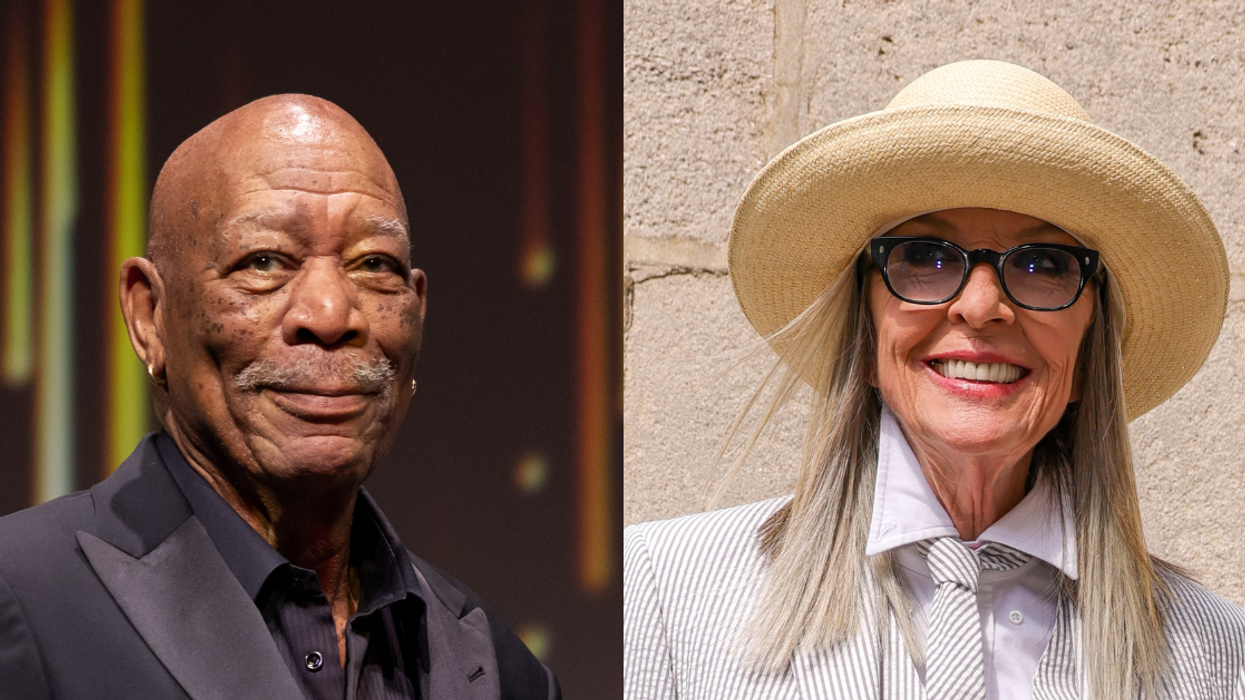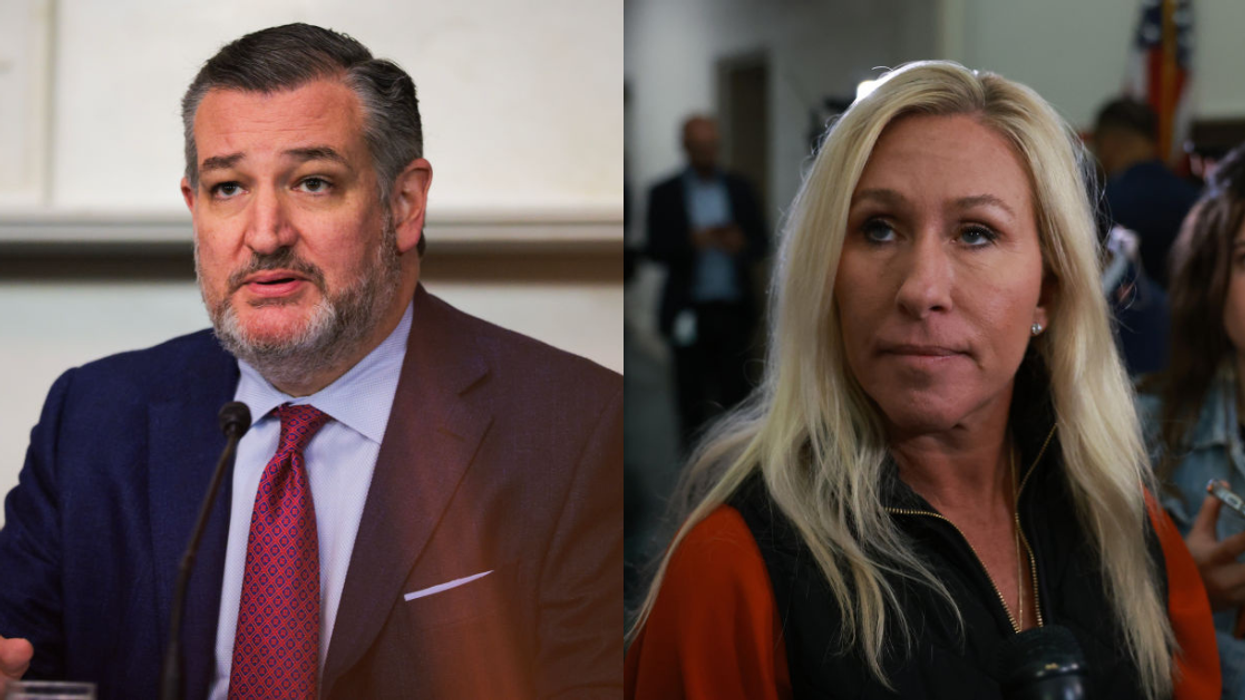The typically red state of Georgia went blue in the 2020 presidential election this year for the first time since 1992, and just a few months later delivered victories in a pair of key runoffs in Georgia that endowed Democrats with a razor-thin Senate majority.
Following their statewide losses, Georgia's Republican legislature swiftly passed S.B. 202, an elections bill designed to limit access to the ballot box, especially for Georgia's Black voters, whose turnout was a key factor in the elections' outcomes. The GOP legislators presented the measure under the guise of election security.
The bill, which was signed into law by Georgia's Republican Governor Brian Kemp, requires ID to cast an absentee ballot, limits the number of ballot drop boxes in each jurisdiction, effectively bans giving food or water to voters in long lines, and introduces a host of other restrictions that critics say amounts to one of the most blatant voter suppression tactics since the Jim Crow era.
The bill's passage faced widespread outcry from Democratic lawmakers, private citizens, and now, one of Georgia's biggest corporations.
Delta Airlines, headquartered in the state's capital of Atlanta, contributed around $300 million to state and local governments in Georgia through taxes and fees in 2018.
But the company's CEO—Ed Bastian—issued a blistering statement against the new law.
It said in part:
"The right to vote is sacred. It is fundamental to our democracy and those rights not only need to be protected, but easily facilitated in a safe and secure manner.
After having time to now fully understand all that is in the bill, coupled with discussions with leaders and employees in the Black community, it's evident that the bill includes provisions that will make it harder for many underrepresented voters, particularly Black voters, to exercise their constitutional right to elect their representatives. That is wrong.
The entire rationale for this bill was based on a lie: that there was widespread voter fraud in Georgia in the 2020 elections. This is simply not true. Unfortunately, that excuse is being used in states across the nation that are attempting to pass similar legislation to restrict voting rights."
He concluded with a promise that Delta would be working with voting rights advocates in Georgia to help offset the law's consequences.
That very week, Georgia Republican lawmakers—in the last hours of the legislative session—attempted to punish the company for making public its stance on the bill.
Republicans in the Georgia State House passed a bill eliminating the state's tax breaks on jet fuel—a move that Republican House Speaker David Ralston acknowledged was made out of revenge:
"They like our public policy when we're doing things that benefit them, and they reap the rewards of those benefits and then turn around and do this. As all of you know, I can't resist a country boy line or two, you don't feed a dog that bites your hand. You've got to keep that in mind."
The bill failed once it got to the Senate, but not before Georgia's Republican lawmakers made their pettiness clear.
But Delta's stance, though unequivocal, wasn't necessarily commendable to Georgia voters whom the law affects. For weeks before the bill's passage, Georgia voting rights advocates implored large Georgia-based companies—especially Delta—to publicly condemn the bill.
The company didn't do so until after it was signed into law—and the heat isn't yet off the company.
The United States Senate is currently considering the For The People Act—a landmark voting rights bill recently passed by the U.S. House of Representatives. Its passage would expand protections for voters in the face of laws like S.B. 202, but with the 60 vote threshold imposed by the Senate filibuster still in effect, its passage is unlikely.








 @realDonaldTrump/Truth Social
@realDonaldTrump/Truth Social






 @hasanminhaj/TikTok
@hasanminhaj/TikTok @hasanminhaj/TikTok
@hasanminhaj/TikTok @hasanminhaj/TikTok
@hasanminhaj/TikTok @hasanminhaj/TikTok
@hasanminhaj/TikTok @hasanminhaj/TikTok
@hasanminhaj/TikTok @hasanminhaj/TikTok
@hasanminhaj/TikTok @hasanminhaj/TikTok
@hasanminhaj/TikTok @hasanminhaj/TikTok
@hasanminhaj/TikTok @hasanminhaj/TikTok
@hasanminhaj/TikTok @hasanminhaj/TikTok
@hasanminhaj/TikTok @hasanminhaj/TikTok
@hasanminhaj/TikTok @hasanminhaj/TikTok
@hasanminhaj/TikTok @hasanminhaj/TikTok
@hasanminhaj/TikTok @hasanminhaj/TikTok
@hasanminhaj/TikTok @hasanminhaj/TikTok
@hasanminhaj/TikTok @hasanminhaj/TikTok
@hasanminhaj/TikTok @hasanminhaj/TikTok
@hasanminhaj/TikTok @hasanminhaj/TikTok
@hasanminhaj/TikTok @hasanminhaj/TikTok
@hasanminhaj/TikTok @hasanminhaj/TikTok
@hasanminhaj/TikTok

 @TMZ/Instagram
@TMZ/Instagram @theshaderoom/Instagram
@theshaderoom/Instagram @theshaderoom/TikTok
@theshaderoom/TikTok @TMZ/TikTok
@TMZ/TikTok @theshaderoom/TikTok
@theshaderoom/TikTok @TMZ/Instagram
@TMZ/Instagram @theshaderoom/Instagram
@theshaderoom/Instagram @TMZ/Instagram
@TMZ/Instagram @TMZ/TikTok
@TMZ/TikTok @theshaderoom/TikTok
@theshaderoom/TikTok @TMZ/TikTok
@TMZ/TikTok @theshaderoom/TikTok
@theshaderoom/TikTok @TMZ/TikTok
@TMZ/TikTok @theshaderoom/TikTok
@theshaderoom/TikTok @TMZ/TikTok
@TMZ/TikTok